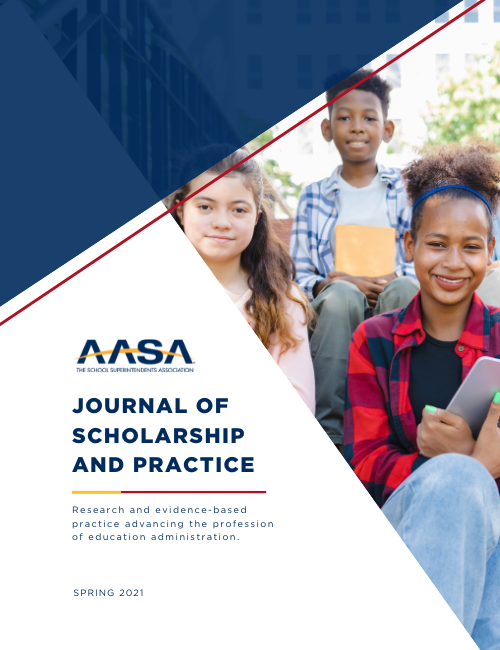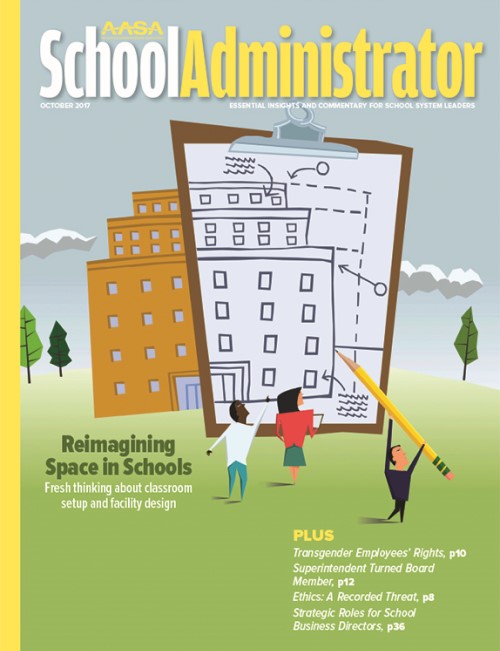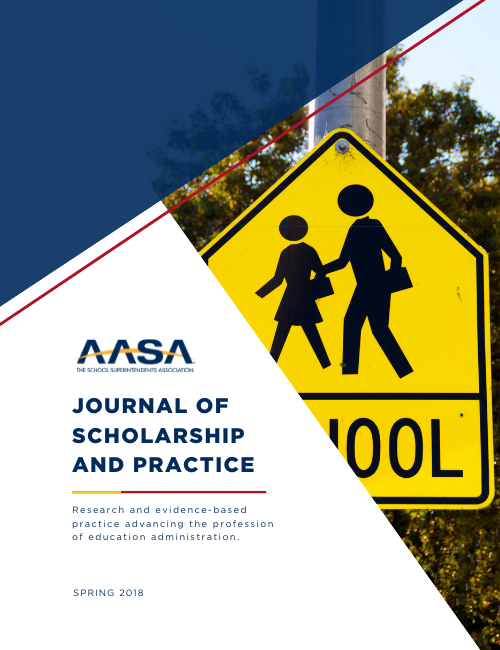2021 Spring Journal of Scholarship and Practice

Contributors to this volume examine, through their studies and experiences, the responsibility of leaders to intentionally foster healthy and equitable cultures and climates, especially approaching post-pandemic schooling. The articles are a compilation by editor Ken Mitchell who has written the editorial titled "Leading and Sustaining a Strong Culture for Post-pandemic Schools." It precedes two research articles, a research-informed commentary, an evidence-based commentary, and a book review.
The first research article written by Carol Mullen, Lee Brantley Shields, and Christopher Tienken asks the question: "What factors and processes contribute to teacher resilience and the ability to overcome adversity?" Before sharing their original research, they cite literature that emphasizes the importance of a caring school culture.
Superintendent Roger Catania, in a research-informed and pandemic-inspired commentary, uses an equity lens to provoke district leaders to reflect on how their decisions to work with corporations influence social and economic inequities that affect children, schools and society.
In a commentary sharing her original research, Linda Mayger provides leaders with a practical and proactive consideration of developing structures that contribute to the organizational culture: "How do organizational routines facilitate continuity and improvement in community schools?" The researcher found that “developing structures that routinize constructive norms rather than depending on individual actors to behave in beneficial ways,” sustains school improvement at the cultural level and in consideration of the climate.
The second research article, written by Keith Zullig, Molly Matthews-Ewald, and E. Scott Huebner, describes the use of a school climate survey (SCM). Claiming there is "a relative dearth of psychometrically sound measures available to assess students’ perception of their school’s climate," the researchers provide school leaders with evidence about the authors’ instrument’s application while assuring us that “the SCM can provide a comprehensive and nuanced look at students’ school environment perceptions, yielding valuable hypotheses about their school behavior, subjective well-being, and academic success.”
Finally, in a review of Responsive Schooling for Culturally and Linguistically Diverse Students, Art Stellar critiques a work that encourages culturally responsive leadership to help their educators in addressing the cultural differences of their students.
Editor Ken Mitchell concludes that "The publication of the Spring 2021 issue of the AASA Journal of Scholarship and Practice comes at a time of optimism: It is spring, a time of renewal. There is a hopefulness that the pandemic is beginning to recede."
Advertisement
Additional Articles
-
Developing Teacher Resilience and Resilient School Cultures
This literature review focuses on teacher resilience and retention, with relevance for building resilient school cultures
-
Incentivizing Equality Through Educational Expenditures
This article shines a spotlight on the ways that school districts—perhaps unintentionally—contribute to a system of social and economic inequality.
-
Sustaining Complex Reforms: An Investigation of Organizational Routines in Community Schools
This comparative case study examines the role organizational routines played in fostering stability and improvement in three well-established community schools.
-
An Introduction to the School Climate Measure
The goal of this research-informed commentary is to provide readers with necessary knowledge to make an informed decision of the appropriateness of the SCM for use in their school or district.
Advertisement
Advertisement



